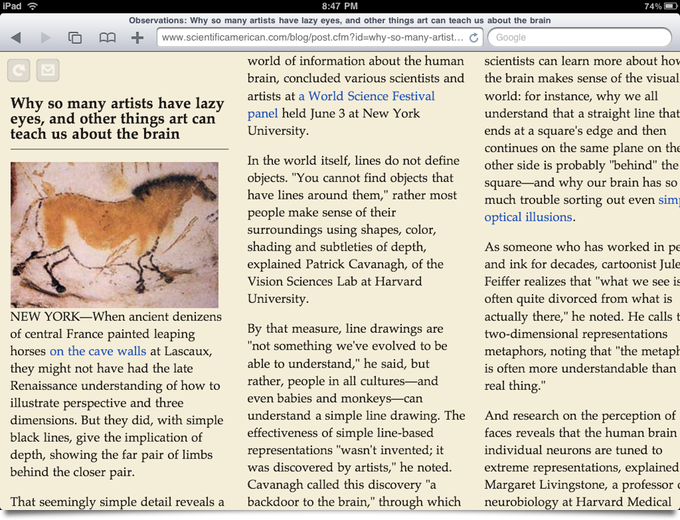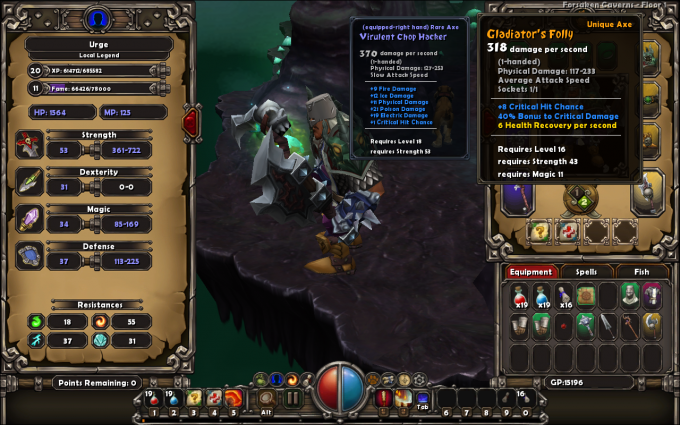Haiku Reviews of Selected Stories from Fragile Things, a Compendium of Short Fiction by Neil Gaiman
Here’s my take on a few of the tales from Fragile Things: Short Fictions and Wonders. As always, let’s not be too pedantic about what constitutes a haiku or a review.
The boy ran away
and found a friend with whom to play
and maybe stay.
In high school, some of our cross country routes took us through a cemetery. Some folks said it wasn’t an appropriate place to run, but I always figured the residents wouldn’t mind the company.
Who is the demon
who resurrects your regrets?
Feelings, flayed, expire.
Gaiman’s comments on this compact parable introduced me to the “Möbius story” label for cyclical stories. This is the first of two or three summarized here.
The Facts in the Case of the Departure of Miss Finch
Evening on the town:
at the circus, underground,
kingdoms, lost, are found.
While they were in the fifth room, the prim biologist said she wished the Smilodon was not extinct. In the eighth room, the Cabinet of Wishes Fulfill’d, she was chosen as a volunteer.
Apparently this story was partly inspired by a Frazetta painting. Awesome.
We all have our needs –
a hunger for friends, or meat;
and some of us feed.
Ever run in to someone you used to know, and wonder what happened to them? Ever wish they hadn’t told you?
Pages from a Journal Found in a Greyhound Bus Somewhere Between Tulsa, Oklahoma, and Louisville, Kentucky
Dreams of roads and rain
in America’s motels,
searching for yourself.
There’s no better place to work out what you’re after than a booth at an all-night diner. If that doesn’t lead anywhere, you might really be lost – or at least there’s a long road ahead. Refill?
Barbecue Sunbird –
a summer delicacy!
Ashes, hatch, repeat.
I want to hang out with Zebediah T. Crawcrustle.
Each year, here we meet
to drink and feast but most to
make you monsters weep.
This story features characters from American Gods, and is set in the world of that novel. It’s a spin on the legend of Beowulf and Grendel, inflected by the American Gods idea that mythical figures exist but subsist only on the strength of human belief. The central question of Monarch of the Glen is simply this: what makes a monster?
Posted on Tuesday, June 15th, 2010. Tags: books, haiku, reviews.
McReadability
Readability is a simple tool that makes reading on the Web more enjoyable by removing the clutter around what you’re reading. McReadability (“Multi-column Readability”) is a new stylesheet for Readability that formats the text in constant-height columns arranged side-by-side. It works best with lengthy texts.
For more screenshots and information, view these previous posts.
McReadability is now hosted at GitHub! Set up your bookmarklet here: anoved.github.io/mcreadability
Posted on Monday, June 14th, 2010. Tags: code, css, javascript, readability.
McReadability works with iPad
I don’t have an iPad, but I got to play with one for a while today.
Posted on Wednesday, June 9th, 2010. Tags: code, ipad, mac, readability, safari.
McReadability compared to Safari Reader
Timely follow-up to yesterday’s multi-colum readability teaser: today, among other announcements, Apple released Safari 5, which includes a built-in Reader feature very similar to Readability. (Update: as Prashant Vaibhav points out in the comments on the Arc90 blog, Safari Reader is in part based on Readability.) Here’s what it looks like:
Swanky. I like some aspects of this reader, but I’m not crazy about the fully justified text. Here’s what the same article looks in McReadability:
Which layout you prefer is, of course, a matter of taste. My stylesheet scales down images, if necessary, to fit the column width. Tofu was my inspiration for McReadability. Here is the Amar Sagoo’s argument in favor of the multi-column format (Amar created Tofu):
Text is usually very wide on the screen, which makes going from the end of one line to the beginning of the next difficult. That’s why newspapers have narrow columns: It makes them faster to read.
So why not just take a normal window and make it narrower, scrolling down as you need? Well, there are usually a lot of lines in a text, and all look more or less the same, so if they move past your eyes vertically, they are difficult to keep track of. The text doesn’t feel stable, and you get lost easily.
Posted on Monday, June 7th, 2010. Tags: code, mac, readability, safari.
Multicolumn Readability Preview
Here’s an article from the New York Times as it appears on my 1920 × 1080 display. There are lots of distractions, but only about one and a half paragraphs of article text are visible.
Here’s how it looks with Readability, a great bookmarklet that filters out the crap and presents the content in a simple, elegant, format:
I created an alternate stylesheet for Readability that formats the text in multiple columns, newspaper-style. (NEW! Compare to Safari Reader.) You scroll sideways; in this format, it’s easier to consult more of the article without scrolling.
This modification was inspired by a desktop app called Tofu.
Compatibility
All Readability configuration options are supported, including footnote links. Margin width is interpreted as the inverse of column width (wide margins yield narrow columns). Some column width tweaking and cross browser debugging remains to be done. I know it works in Webkit and Mozilla (Safari and Firefox); implemented with CSS3 Columns.
That’s hot, Jim. I want it.
First I want to check if it’s feasible or worthwhile to submit it as a patch to the original bookmarklet, although there are valid concerns that the column format isn’t appropriate for all types of content that may be viewed with Readability.
Otherwise, I’ll definitely make it available here – although I’ll have to investigate what’s permissible. (I have difficulty understanding the terms of many open source software licenses.) Fortunately, since all my changes are confined to the stylesheet, a normal Readability bookmarklet can be edited to point to a copy of the multi column stylesheet.
Update: Now available.
Posted on Monday, June 7th, 2010. Tags: code, css, javascript, mac, readability, safari.
Ten Mile Tack
My front tire picked up this thumbtack on the ride home yesterday. I noticed a clicking sound coming from the front wheel, but didn’t realize what was causing the noise until I was halfway to work today. Since the tire was still fully inflated, I decided not to mess with it.

The tack has clearly punctured the tube as well as the tire, but, remarkably, the tube doesn’t seem to be losing any air. I don’t know whether this is thanks to dumb luck, perfect circumstances, or the “Protect Air” feature advertised on the sidewalls of these Hutchinson Top Slick 2 tires.
Posted on Thursday, June 3rd, 2010. Tags: bike.
Gear Ratios
I know from experience that my bike has a few different gear combinations that yield very similar mechanical advantages. Sheldon Brown’s authoritative bike website features a gear calculator, which inspired me to examine my sprockets so I could calculate the exact gear ratios at my disposal.
My bike has 26″ wheels. In the front, my biggest chainring (high gear) has 44 teeth and the smallest chainring (low gear) has 22 teeth. In the back, I have an 8 speed cluster, ranging from 34 teeth (low gear) to 11 teeth (high gear). Here’s what this information looks like when plugged in to the calculator:


The output is a table of every gear combination. There are a few units to choose from. I like meters development: how many meters the bike will roll forward for each revolution of the pedals. Here’s the table, labeled with front gears across the top and rear gears down the side:
What this shows is that in my highest gear (the most teeth driving the fewest teeth) the bike will go forward 8.3 meters for each revolution of the pedals, whereas in my lowest gear one revolution of the pedals will move the bike forward just 1.3 meters – albeit with enough torque to climb a wall, given sufficiently grippy tires.
Certain sprocket combinations aren’t practical. Generally speaking, I only use high gear in front with high gear in back (top left of the table), and low gear in front with low gear in back (bottom right of the table). Otherwise, the chainline crosses from left to right, or vice versa, which causes more wear and tear; it can also be difficult to shift into these gears. Fortunately, similar ratios to these extremes are available using the middle chainring.
Posted on Saturday, May 29th, 2010. Tags: bike.
Helmet Wrap
I found that this bargain-bin skull cap I rarely wear will stretch to fit around my bike helmet. It’s not waterproof, but I wonder if it might provide a little extra warmth (or at least a little less wind) in cold weather. Of course, typically a cap like this would be worn under the helmet – but in my case, there’s not much room to spare. Pluto got bumped from the planet list just to make way for my noggin.
Posted on Friday, May 28th, 2010. Tags: bike.
Story Synopses for May 26
I have backlog of notes on story podcasts. Here are limerick synopses for a scant few of them:
Remembrance Is Something Like A House by Will Ludwigsen (via Podcastle 100)
A house that was home is forsaken;
abandoned in shame, it awakens.
With a creak and a lurch
it sets off on a search
to put right what once was mistaken.
Acceptable Losses by Simon Wood (via Pseudopod 191)
Mission’s the same, boys – collect our dead
with shovels and buckets and dread.
Many battles are won
and the Queen thanks you, son,
for her best weapon needs to be fed.
Intelligent Design by Ellen Klages (via Drabblecast 159)
In the kitchen with Grandma, baking,
young God learns the way of world-making.
“A pinch, a touch – you see?”
But He breathes life care-free;
another batch of bugs is waking.
Posted on Wednesday, May 26th, 2010. Tags: drabblecast, limerick, podcastle, pseudopod, reviews.
Torchlight Screenshots
Steam is is like an iTunes Store for computer games. It was recently released for the Mac, and Torchlight was among the first “Steam powered” Mac games available. It’s a dungeon-crawling action RPG reminiscent of Diablo – and that’s a good thing. I have to admit I’ve been playing it quite a bit since buying it as an early birthday present for myself. (I’m also pleased to report that, unlike many other modern games, it runs well on my first-generation MacBook, at least with the “Netbook Mode” setting enabled.)
Torchlight provides a built-in screenshot function to save snapshots of your adventures. The keyboard command is Shift-F9. The screenshots are supposed to be saved in ~/Library/Application Support/runic games/torchlight/screenshots/. However, presently they are written to the torchlight folder with a filename like screenshots\05222010_081129195.png. If you look in ~/Library/Application Support/runic games/torchlight/local_settings.txt, you’ll see that the SCREENSHOT PATH variable includes a backslash, so the path gets misinterpreted as part of the filename on Mac OS X. Fix it to read as follows and your screenshots will be filed appropriately:
SCREENSHOT PATH :screenshots/
I’m sure that was bugging you.
Posted on Saturday, May 22nd, 2010. Tags: games, mac.










